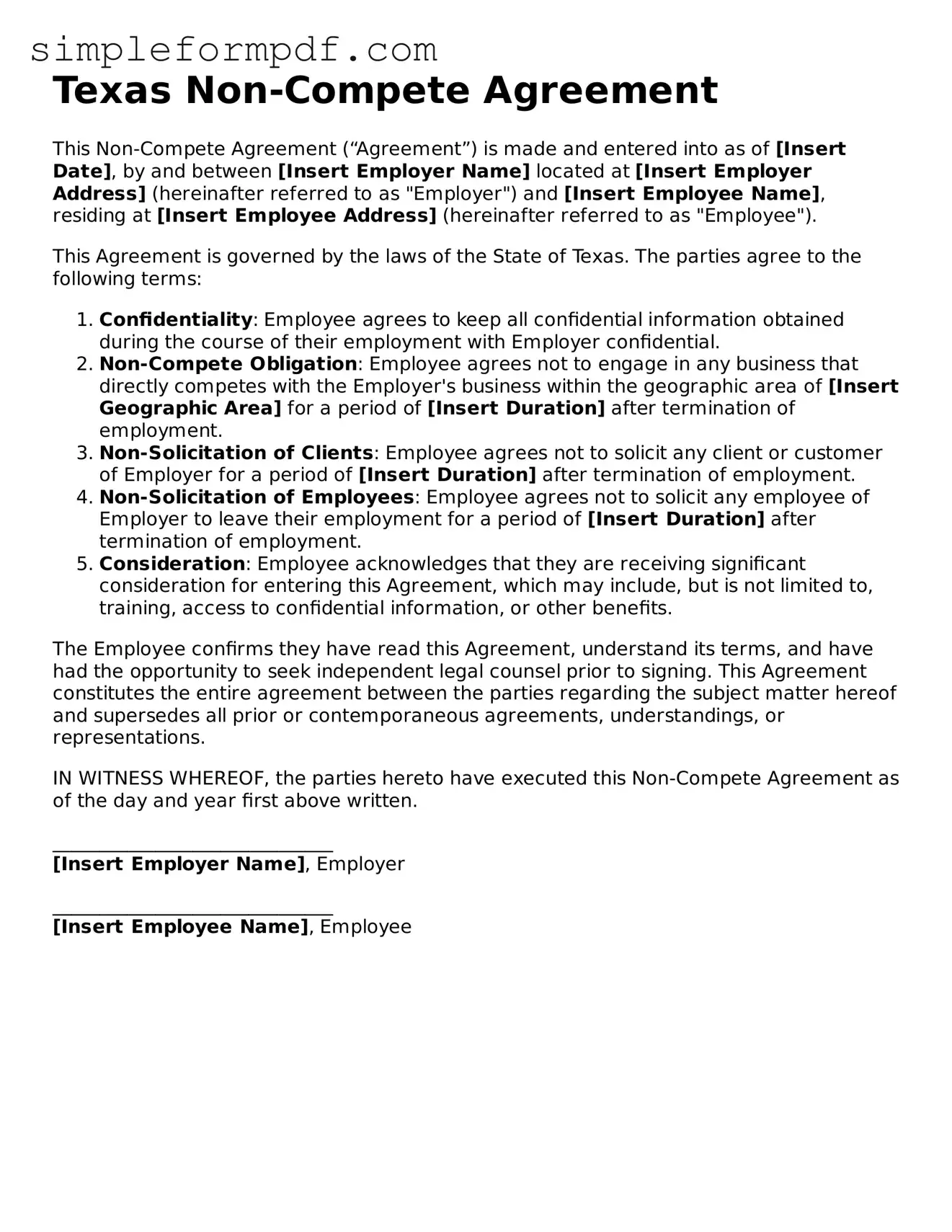Free Non-compete Agreement Form for the State of Texas
A Texas Non-compete Agreement is a legal document that restricts an employee from engaging in certain competitive activities after leaving a job. This form helps protect a company's trade secrets and business interests by outlining specific limitations on where and how an employee can work post-employment. To ensure compliance and protect your rights, consider filling out the form by clicking the button below.
Launch Editor

Free Non-compete Agreement Form for the State of Texas
Launch Editor
Need instant form completion?
Finish Non-compete Agreement online in just a few minutes.
Launch Editor
or
Download PDF
